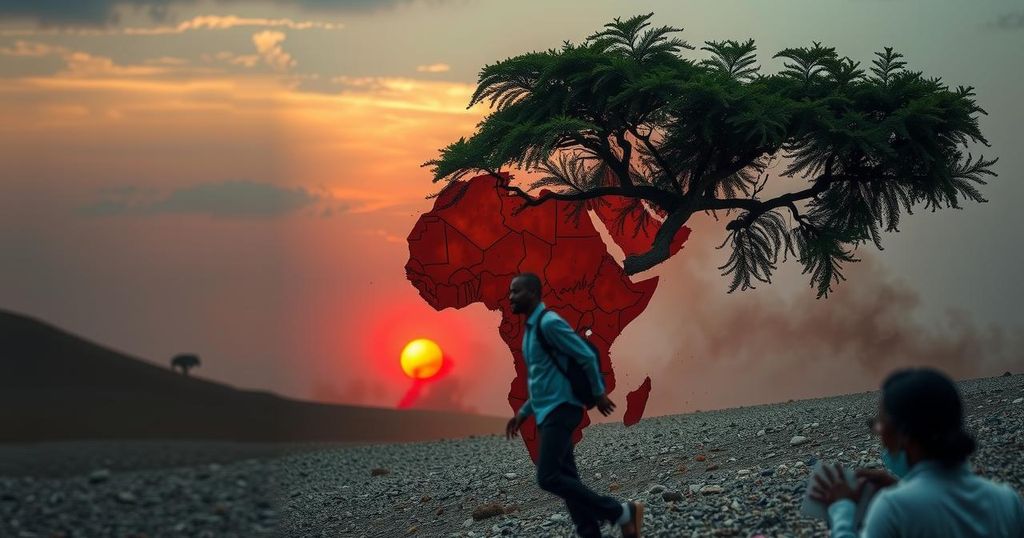Crisis in Africa: Climate Change, Migrant Challenges, Mpox Outbreaks, and Conflicts in 2024
In 2024, Africa faced severe crises due to climate change, migrant incidents, mpox outbreaks, and armed conflicts, all of which threaten the livelihoods of millions. Key challenges included rising temperatures causing droughts and floods, significant humanitarian needs in Somalia, and a public health emergency declared in the DRC. Experts are urging both African governments and the international community to act decisively to address these interconnected issues.
In 2024, Africa contended with multiple crises stemming from climate change, migrant accidents, outbreaks of mpox, and ongoing armed conflicts. These challenges have severely impacted millions, jeopardizing their livelihoods and well-being across the continent. Rising temperatures have led to droughts and floods, causing significant fatalities and displacements, such as the tragic incident in northeastern Nigeria where a dam burst, affecting over a million people.
In Somalia, the dire effects of the worst drought have compelled 6.9 million people—almost two-fifths of the population—to require humanitarian assistance, positioning the country at the top of the 2024 Global Hunger Index. Concurrently, the plight of migrants has worsened, with over 10,457 recorded deaths since the year’s start as they seek refuge from conflict and economic challenges. The necessity for improved migration policies and safer routes is evident.
The African continent has also grappled with escalating mpox cases, particularly in the Democratic Republic of the Congo, where the World Health Organization declared a public health emergency. Over 1,300 suspected deaths due to mpox highlight the urgent need for coordinated health responses at both national and international levels.
Armed conflicts remain pervasive in the region, with more than 35 non-international conflicts ongoing across various countries including Nigeria, Ethiopia, and the Central African Republic, contributing to massive displacement and humanitarian crises. Experts indicate that ineffective governmental responses to these interconnected challenges are exacerbating the situation.
Kazeem Olalekan, a researcher in security and climate, remarked on the neglect of critical issues such as health insurance and investment in essential services, emphasizing, “Generally, one will realize that the governments haven’t done enough in fulfilling the terms of the social contract they willingly entered into with the people. The health challenge is also there. Yet, authorities are not providing any form of health insurance for the people and they are also not investing in the health sector which is complicating health problems.”
To address these issues effectively, experts urge the international community to enhance its involvement in peace negotiations, support conflict resolution, and promote sustainable agricultural practices that are resilient to climate change. Furthermore, humane migration policies and community engagement initiatives are critical for mitigating health outbreaks such as mpox.
The article addresses a multitude of pressing crises that have emerged in Africa in 2024, notably including the adverse impacts of climate change, which manifest in extreme weather events leading to significant human displacement and hardship. Additionally, the ongoing crises due to armed conflicts and the proliferation of mpox cases exacerbate the continental humanitarian plight. The combination of these factors highlights the urgent need for governmental and international responses to mitigate their effects and safeguard the welfare of millions across the region.
In summary, Africa’s multifaceted crises in 2024 underscore an urgent call for both national and international action. Addressing the impacts of climate change, enhancing migrant safety, combating health outbreaks like mpox, and resolving armed conflicts are imperative for the stability and prosperity of the continent. As critical voices in the region advocate for better governance and resource investment, it is essential that both local leaders and the global community collaborate to foster a secure and sustainable future for Africa.
Original Source: www.aa.com.tr




Post Comment